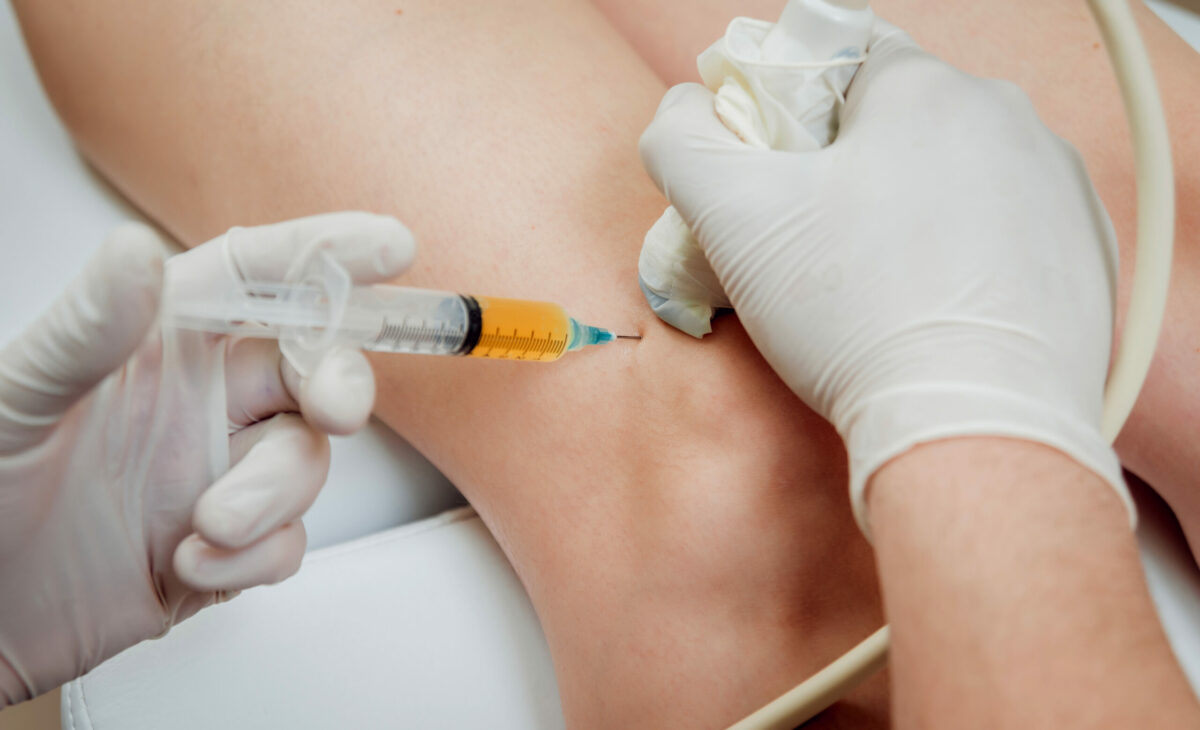Dr. Rachel Erickson is a board-certified family medicine professional, specializing in sports medicine. At EmergeOrtho—Blue Ridge Region, Dr. Erickson is an integral member of our Sports Medicine and Orthopedic Urgent Care teams providing expertise in the care of joint, tendon, muscle, and ligament pain caused by a variety of conditions, including injuries, arthritis, and strains.
Dr. Erickson is experienced in a number of noninvasive, outpatient procedures that can provide effective, temporary relief to her patients. Many of her patients have searched for a “cortisone shot near me” and found Dr. Erickson to be the right doctor to help treat their pain. Dr. Erickson administers cortisone shots for a variety of joint conditions.
Conditions Doctors Treat With a Joint Ultrasound
 In her practice, Dr. Erickson often uses cortisone shots to manage symptoms of painful inflammatory joint conditions, such as:
In her practice, Dr. Erickson often uses cortisone shots to manage symptoms of painful inflammatory joint conditions, such as:
- Arthritis
- Bursitis (hip, elbow, shoulder, knee)
- Tendinitis/Tendinopathy
- Sports injuries
- Gout
The purpose of a cortisone injection is to relieve pain, reduce swelling, and improve mobility in many areas of the body. Dr. Erickson often administers some of these targeted injections:
- Knee ultrasound injection
- Cortisone shots for hip bursitis
- Shoulder shot
- Elbow injection
- Wrist injection
- Ankle joint injection
How Are Joint Ultrasound Injections Used?
Orthopedists are currently applying ultrasound technology that guides cortisone injections to get a more accurate, precise placement of the injection. An ultrasound is most often used to measure the progress of a pregnancy and is a proven, safe, noninvasive technology effectively applied for use in outpatient orthopedic care.
Orthopedists conduct knee, hip, and ankle joint ultrasound injections. They also use ultrasound to assist in the diagnosis of acute and chronic changes of tendons (including the rotator cuff) and ligaments, and the characterization of joint effusions.
How Do Ultrasound-Guided Injections Work?
Ultrasound technology captures real-time, dynamic images of a joint, ligament, muscle, tendon, or other connective tissue using high-frequency sound waves. Instead of relying on touch and experience to determine precise injection placement, a doctor uses the imaging probe to create a live video of the joint tissues. The detailed pictures guide where the cortisone is injected.
What Are the Advantages of an Ultrasound-Guided Cortisone Shot?
Physicians have found a number of advantages an ultrasound-guided injection has compared with a traditional injection, including:
Increased Timing: Ultrasound-guided injections are typically considered quicker and more effective than traditional injections.
Reduced Pain: Ultrasound-guided injections have been shown to be less painful than conventional injections.
Improved Accuracy: Since the area that needs to be treated may be just a few millimeters in size, the ultrasound guidance enables more precision.
More Concentrated Dose: The injected medication goes more directly to the inflammation site for a more effective dose.
More Convenient Outpatient Procedure: Physicians can perform these procedures in their orthopedic offices.
Improved Safety: Proven, safe technology enables the physician to see exactly where the needle is going, reducing the risk of complications from improper placement.
No Exposure to Radiation: Unlike X-ray and other image technologies, the use of sound waves is a safe procedure with no exposure.
How Long is a Cortisone Injection Effective?
There are a number of factors that contribute to the effectiveness of a cortisone injection including the condition treated, the joint affected, and the patient’s overall health. Because it is used to provide pain relief by reducing inflammation, it can provide immediate relief—though it is temporary. Generally, a cortisone shot can suppress pain for anywhere from a few weeks to multiple months.
How Often Can You Get a Shot?
Just as a number of factors affect how long a shot will last, there are a few factors that affect how often you can receive a shot, including your condition, the severity of your pain, and your reaction to the injection. Generally, you should not get cortisone injections more often than every 12 weeks and usually not more than 3 or 4 times a year. Your physician will evaluate your condition for the best treatment program.
Are There Other Injection Options?
While a cortisone steroid injection is effective for most people, sometimes it does not provide adequate pain relief. Dr. Erickson has experience using other pain and inflammation treatment options, including:
- Viscosupplementation (another type of joint injection)
- Platelet-rich plasma injections
If you have joint pain and/or an injury, ultrasound-guided joint injections may be an effective treatment. It is important to work with a specialist to learn the best options for your condition. Dr. Erickson can create a personalized treatment plan to help you get the pain relief you need. Please self-schedule an appointment so you can emerge stronger, healthier, and better able to lead an active life.




